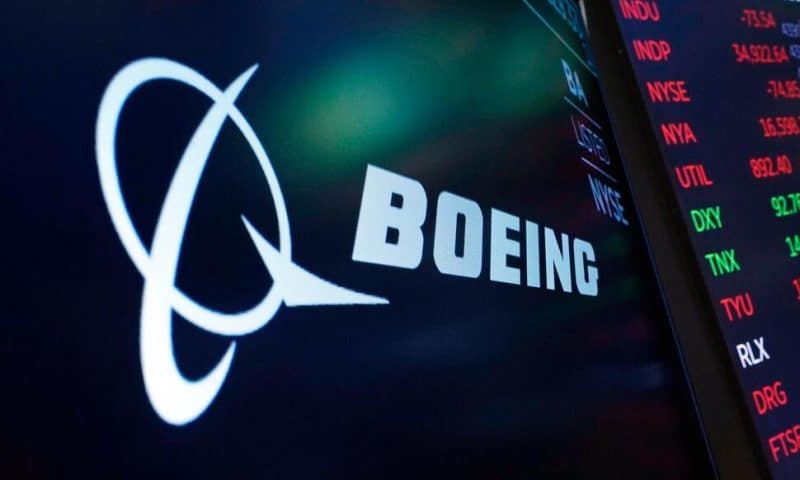Boeing says the head of its 737 jetliner program is leaving the company immediately, paving the way for the aircraft maker to appoint new leadership at the troubled division
SEATTLE — Boeing said Wednesday that the head of its 737 jetliner program is leaving the company in an executive shake-up weeks after a door panel blew out on a flight over Oregon, renewing questions about safety at the company.
Boeing announced that Ed Clark, who had been with the company for nearly 18 years and led the 737 program since early 2021, was leaving immediately.
Clark oversaw the factory in Renton, Washington, where final assembly took place on the Alaska Airlines 737 Max 9 involved in last month’s accident. Federal investigators said bolts needed to help keep a panel called a door plug in place were missing after repair work on the plane.
Katie Ringgold, a vice president in charge of delivering 737s to airlines, will succeed Clark as vice president and general manager of the 737 program and the Renton factory, according to an email to employees from Stan Deal, the CEO of Boeing’s commercial airplanes division.
The company announced several other appointments, including naming longtime executive Elizabeth Lund to the new position of senior vice president for commercial airplanes quality.
The moves are part of the company’s “enhanced focus on ensuring that every airplane we deliver meets or exceeds all quality and safety requirements,” Deal said in his email to staff. “Our customers demand, and deserve, nothing less.”
The blowout of a panel on the Alaska Airlines Max 9 has led to more scrutiny of Boeing by regulators, Congress and airlines.
The Federal Aviation Administration grounded all Max 9s in the U.S. for about three weeks for inspections of the emergency door panels, and the agency is limiting Boeing production until other quality concerns are resolved. FAA Administrator Mike Whitaker said Boeing is not paying enough attention to safety as it tries to build more planes to meet demand from airlines.
The CEOs of Alaska Airlines and United Airlines — the two U.S. carriers affected by the Max 9 grounding — expressed outrage and frustration with the company. They asked what Boeing intends to do about improving the quality of its manufacturing.
“We caused the problem and we understand that,” Boeing CEO David Calhoun said on Jan. 31. “We understand why they are angry and we will work to earn their confidence.”
Calhoun said the company has increased inspections in its plants and at suppliers, appointed a retired Navy admiral to review quality management, and shut down the 737 assembly line for one day so workers could discuss quality and safety.
Criticism of Boeing has reached levels not seen since the aftermath of two deadly crashes involving Max 8 jetliners in Indonesia and Ethiopia in 2018 and 2019. The crashes killed 346 people and led to the ouster of Boeing’s then-CEO.
Shares of The Boeing Co., which is based in Arlington, Virginia, closed down 1% on Wednesday. They have lost 19% — and about $27 billion in stock-market value — since the door blowout.

